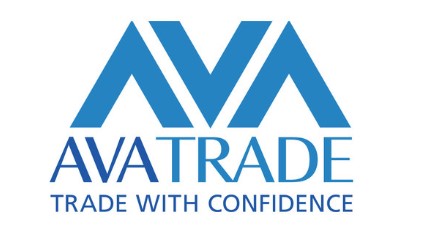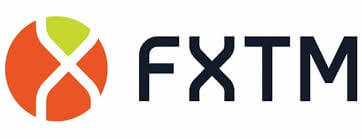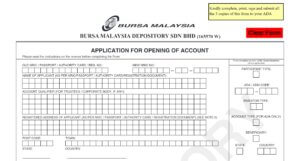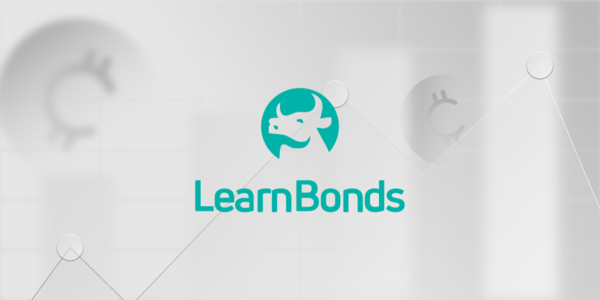How To Buy Stocks in Malaysia 2026 – A Beginner’s Guide
Buying and selling stocks is a hugely popular form of investment carried out by millions around the world. It’s also regarded as one of the easier types of trading for beginners, but before you put your money on the line, you’ll need to learn the ins and outs of how to buy stocks in Malaysia.
That’s where we come in – this guide covers everything you need to know about buying stocks in Malaysia. Not only do we review the best Malaysia stockbrokers, but we also provide a step-by-step guide on how you can begin trading stocks today.
-
-
How to Buy Stocks in Malaysia in 3 Steps:
Already familiar with how to buy stocks and want to jump in straight away? You can get started with stock trading in Malaysia in just three quick steps:
Step 1: Choose a Top Malaysia Stock Broker
Getting the right stockbroker for you is a critical step in starting to buy and sell stocks in Malaysia. Whether you want to learn how to buy US stocks or stocks from other parts of the world, you need to find a stock trading platform that suits your needs.
To help you out, we’ve reviewed the most secure and reliable stock trading platforms in Malaysia in 2026
1. Plus500 - Commission-Free Stock Trading
Plus500 is a well-known stockbroker that has been in the industry since 2008. It is licensed and regulated by renowned regulatory bodies such as the FCA in the UK, ASIC in Australia and CySEC in Cyprus. It offers a wide range of stocks at relatively low spreads and no trade commissions.
As Plus500 does not charge commissions, you’ll only need to pay for the spread on your stock trades, which are among the lowest among Malaysia stock brokers. If you trade leveraged CFDs, there are also swaps rates for overnight positions. Plus500 also assesses an inactivity fee of MYR 40 ($10) if your account is dormant for more than three months. You can trade stocks with up to 1:5 leverage on this platform.
Plus500 support numerous deposit and payment methods such as debit/credit cards, bank transfer, Skrill and PayPal. There is no deposit fee, and withdrawal is free up to five times per month. The minimum deposit required is MYR 400 ($100) for a standard trading account.
This broker’s proprietary trading platform is user-friendly, efficient and available for desktop and web. It comes with advanced charting tools and numerous risk management tools such as stop losses and take profit levels. You can also use the mobile trading platform that comes with free email and push notifications to alert you to significant stock price changes.

- Affordable: No commission or banking fees
- Simple Platform: Easy to use trading and charting tools
- Highly regulated: FCA, ASIC & CySEC licences
- Inactivity Fee: Charged after three months
80.5% of retail investor accounts lose money when trading CFDs with this provider.2. AvaTrade - Includes MetaTrader 5
AvaTrade is a renowned broker which offers its own highly advanced charting platform. It offers comes with access to MetaTrader 4 and MetaTrader 5, which have a wide range of advanced trading tools, and also enables the use of trading bots. Both AvaTrade’s own platform and MT5 are available of desktop and mobile.
This broker’s selection of stocks is slightly limited in comparison to other platforms, with only around 50 companies available, mostly from the US, though it also offers ETFs. These are also traded via CFDs on the platform, with leverage of up to 1:20..
You’ll find a wealth of educational information and insights, including trading videos and an ebook, meaning this platform is great for the newbies and advanced traders. It also offers copy trading, and you can choose to either fully automate the process or only partially automate it.
AvaTrade holds licenses from multiple jurisdictions, so it’s a trusted platform on which to buy stocks. You can get started with a $100 deposit, or you can try out the free demo account.
- Choice of Platfroms: Propriety, MT4 & MT5
- Education: Trading videos and ebook
- Copy Trading: Mimic other's portfolios
- Limited Stocks: Only around 50 shares to trade, mostly from US companies
- High Inactivity Fees: $50 after 3 months
There is no guarantee you will make money with this provider.3. IG - Renowned and Respected Stock Broker
IG a well-known offshore stock broker that offers its services to Malaysians. Founded all the way back in 1974, it is regulated and licensed by numerous regulatory bodies and is a member of the FTSE 500 exchange in the UK, so, it’s one of the most trustworthy online brokers you can turn to for stock trading. In addition, its clients’ funds are segregated and kept separate from its company funds.
IG offers a huge range of over 17,000 stocks from around the world, so there’s plenty to choose from. You can trade stock CFDs, or you can buy stocks through IG’s shared dealing service.
This broker has a proprietary web-based trading platform that comes with advanced trading tools, customizable layouts and other technical indicators. This platform is also available as a mobile trading app that works on both iOS and Android devices. Advanced traders can also sign up for a MetaTrader 4 account to develop trading signals and backtest custom trading strategies.
To get started trading with IG, your trading account should have an initial minimum deposit of MYR 1,000 ($250). You can deposit funds through PayPal, bank wire transfer and credit or debit cards.
- Advanced Charting: Includes MetaTrader 4 (MT4)
- Mobile Trading: Buy and sell stocks on the go
- Easy Deposits: Supports a wide range of payment methods
- High Spreads: Slightly more expensive than other brokers
There is no guarantee you will make money with this provider.4. FXTM - Spreads from 0.1 Pips
FXTM is a forex and CFD broker that offers stock trading at affordable fees. Spreads start from just 0.1 pips, so they’re among the most competitive in the space. on FXTM, Buying and sell of stock CFDs takes place on the MT4 platform.
This broker offers some useful trading tools and market insights, including analysis videos. There are also educational resources, including ebooks, webinars, and education videos, so it’s a good place for beginner traders to start.
Malaysia traders can also get started with just a $10 minimum deposit, which is much lower than average. Founded in 2011, this UK-based broker is licensed by the FCA and CySEC, so you can buy and sell stock CFDs in confidence.
- Low Spreads: Starting from 0.1 pips
- Education: Trading videos and ebook
- Copy Trading: Mimic other's portfolios
- Limited Stocks: Only around 50 shares to trade, mostly from US companies
- High Inactivity Fees: $50 after 3 months
There is no guarantee you will make money with this provider.Step 2: Learn How Buying Stocks Works in Malaysia
Before you start trading with your new brokerage account, it’s important to understand how to buy stocks in Malaysia. Here, we’ll cover the most important things you need to know to get started.
How Do You Buy Stocks in Malaysia?
To start your stock investing journey in Malaysia, you will first need to open a Central Depository System (CDS) account. This is an account that you can use to buy and sell shares as well as track their price movements.
Go to an authorized depository agent to open the CDS account. You will be required to provide a copy of your government-issued ID card and pay MYR 10. Also, keep in mind that you still need to open a trading account with a regulated stockbroker, in addition to your CDS account.
Ways to Buy and Sell Stocks
When you buy stocks, you invest in a small portion of a company. You can invest in shares of top companies in Malaysia or around the world. If the company does well and the price of the stock rises, you could potentially sell your stock for a profit or hold onto it and collect dividend payouts. Of course, you could also lose money when buying stocks if the company fares poorly. So, it’s important to understand how this market works before you invest.
One of the best things about buying stocks is that there are multiple ways to go about it. Let’s take a look at the different ways you can buy stocks.
Buying traditional stocks
The traditional way of buying and selling stocks remains the most popular. Here, you’re investing your money in a single company. This may be a penny stock, which is a small company’s stock that trades for less than $5 per share, or it may be a blue-chip stock, which are large companies with extensive market capitalization and expensive stocks.
The aim when buying and selling stocks is to earn money, and this can be done in a number of ways. Firstly, you can sell the stocks for higher than you bought them for. You can also earn dividends, which are portions of a company’s profits that are paid out to shareholders, typically annually.
You can buy stocks on a short term or long term basis. Short term traders typically look to buy and sell stocks at a quick profit and aren’t entitled to dividends. Long-term investors aim to keep the stocks for a number of years with the intention of earning dividends and seeing the value of the stock rise.
Investing in Stocks or Shares through ETFs and Index Funds
Both index funds and ETFs are securities that involve bundling together many assets into a single investment. They have become a popular choice for investors because they allow diversification. A few ETFs and index funds can result in a highly diversified portfolio. For instance, an S&P 500 based ETF will give you access to some of the biggest companies in the US.
The investment options inside the index funds and ETFs are based on an index, which is a subset of the broader market. This is why it is possible to manage both securities passively. In contrast, actively managed funds such as mutual funds require you to actively choose what to invest in, resulting in higher trading costs.
Passively managed investments follow the trend of the index they are tracking and have historically shown impressive results. For example, the S&P 500 annual return has averaged around 10% for almost a decade. Nonetheless, actively managed funds can offer positive returns in the short-run because you will rely on the market conditions when making trading decisions.
The biggest difference between index funds and ETFs is the way they are bought and sold. While ETFs can only be traded throughout the day, index funds can only be traded for the price set at the end of the trading day.
Investing in Stocks through CFDs
A contract for difference (CFD) offers you an opportunity to gain from price movements in the market without owning the stock. It can be calculated by looking at the asset’s price movement between the trade entry and exit points, without considering the underlying value of the asset. This is done through a contract between you as the trader and your stockbroker.
For example, if the ask price of a stock is MYR 101.04 ($25.26) and you buy 100 shares, the cost of the transaction will be approximately MYR 10,104 ($2526), including fees and commissions. In a traditional broker, you will be required to raise up to 50% margin, which equates to around MYR5052 ($1263). However, a CFD broker will only require you to raise around 5% margin that translates to MYR 505.2 ($126.30).
A loss in a CFD trade is equal to the size of the spread at the time of executing the trade. For example, if a spread is 5 pips, the trade needs to gain more than 5 pips for the position to break even. While you will still have this gain if you own the stock, you will still incur commissions and other costs that will significantly affect your profitability.
One of the biggest advantages of CFD trading is that you can trade with leverage, meaning you borrow capital from a broker to make larger trades. CFDs also allow you to go short on stocks, meaning you can speculate on the price going down as well as up.
Another advantage of investing in stocks through CFDs is that it gives access to the global market from a single platform. Most CFDs brokers offer stock assets in all the world’s major markets, which allow 24-hour trading. You can trade CFDs on a rich selection of over 4,000 products from worldwide markets.
Trading Stocks with Options
Options are financial securities that derive their value from underlying assets like stocks. They give you the right but not the obligation to trade an underlying stock at a set price and purchase stocks like most other asset classes.
They are popular among investors because they can enhance your portfolio through added leverage, income and even protection. Regardless of the situation, there is always an option scenario that will match your goal. For example, you can use options to hedge against a falling stock market to minimize losses. Furthermore, they can be used for speculative purposes like staking on the direction of the stock.
Similar to other types of investments, there are certain risks associated with options trading that you should be aware of before you start investing. Options belong to a broader category of securities known as derivatives. A derivative is derived or depends on the price of something else. For example, as wine is a derivative of grapes, a stock option is a derivative of a stock. Options are derivatives, and their value depends on the price of other financial securities such as stocks.
Lastly, there are two types of options: call option and put option. The call option gives you the right to buy a stock at the predetermined price, which is commonly known as the ‘strike price.’ On the other hand, the put option gives you the right to sell the stock.
Options are less than commonly offered than CFDs, ETFs and index funds and are generally less popular among new traders learning how to buy stocks in Malaysia for the first time.
What is the Best Time to Buy Stocks in Malaysia?
In the morning, when the stock market first opens, stock prices can go wild because of the news released after the closing bell the day before. This volatility can be hard to predict, so it’s generally not a good idea to trade right as the market opens.
The mid-morning hours are ideal for day trading stocks because there are significant price movements in relatively short amounts of time. Most professional traders stop trading around noon, as that is when volatility and trading volume tend to start declining. After this time, trades may take longer to fill and price movements are significantly smaller.
What Regulations are in Place for Buying Stocks in Malaysia?
The Securities Commission Malaysia (SCM) is the regulatory agency responsible for the stock market and all stockbrokers that offer their services in Malaysia. It was established by the Securities Commission Act of 1993 and is directed by the Minister of Finance.
The law requires all Malaysians to only buy and sell stocks online through regulated brokers. By doing so, they will be less prone to scams and can better protect their investments.
Many stockbrokers in Malaysia are also licensed by respected bodies from around the world.
What Risks are Involved with Buying Stocks in Malaysia?
The stock market offers an excellent opportunity to make a quick profit. However, there are also certain risks associated with investing in stocks.
The most important of these is financial risk. When you buy stock in Malaysia, there is a chance that the price subsequently falls. If this happens, you can either sell the stock and realize a loss, or you can hold the stock indefinitely until the price rebounds. However, that also means your money could be tied up in that stock for years at a time.
Liquidity risk is also common in stock trading. This arises when there are not many buyers for a stock that you want to sell. In that case, you may be forced to hold the stock or sell at a lower price. You can avoid liquidity risk by investing only in stocks that trade on major global exchanges with high trading volume.
Interested in other types of trading? Learn how to buy Bitcoin in Malaysia. Or if you’re interested in forex, check out the top forex brokers in Malaysia.Step 3: What Factors Should You Consider When Buying Stocks?
Profiting from stock trading is both an art and a science. It’s essential to invest in the right stocks at the right time to turn a profit. So, let’s take a look at some of the factors you need to consider when choosing what stock to buy.
- Historical Financial Performance – Before buying a share of any company, you should look at its recent and historical financial performance. Most publicly traded companies issue quarterly or annual financial statements, including cash flow statements, balance sheets and income statements. You may be able to get this data through your stock broker. Some of the key ratios that you should concentrate on are liquidity ratios, profitability ratios, efficiency ratios, valuation ratios and leverage ratios. Be sure to compare these ratios to those for other companies in the same industry.
- Dividend Payout – Not all companies issue dividends, but many do. These are quarterly or annual payouts, usually in the form of cash that’s deposited in your trading account just for owning shares. One of the biggest benefits of getting dividends is having a steady flow of income over time. Most well-established companies, such as Disney and IBM, tend to increase dividend payouts from year to year. In fact, there are certain companies that have continuously increased their dividends for even more than 20 years. However, keep in mind that dividends aren’t guaranteed. So, it’s important to check financial statements to make sure the dividend payouts are sustainable.
- Professional Share Forecasts – Market analysts with years of experience are constantly evaluating most of the major companies in the world and trying to predict the future value of their shares. A lot of this research is available to the public. Be sure to check whether analysts have issued buy or sell recommendations for a stock you’re looking at and read some of the arguments for why a company may or may not be a good investment.
- Economic Factors – Generally speaking, the stock market rises and falls with the global economy. For example, an economic crisis can cause the market to drop, while record-low unemployment can push stock prices to new highs. Not every company will be equally affected by economic announcements, so it’s important to think about what market sector a stock falls into and whether the underlying company will see a boost or drop in revenue because of current market conditions.
Step 4: Open an Account to Buy Stocks
Ready to get started buying stocks?
Stocks are one of the most common financial products and are offered by practically all providers.
Just select one from our featured list above, open an account, and make your first trade.
Account opening is usually a quick process.
Conclusion
Buying and selling stocks in Malaysia is a way to take part in the global stock market and invest in shares of individual companies. You can trade individual stocks, build a diversified portfolio by investing in ETFs, or buy and sell CFDs or options to gain access to leverage. Whatever your goal, you can build a custom trading or investing strategy and manage your risk as you see fit.
References
To ensure we bring you the most reliable and accurate information possible, our writers use primary sources to support their content. These include studies, government resources and commentary from industry experts.
- Securities Commission Malaysia. “Equities Market Statistics.” https://www.sc.com.my/api/documentms/download.ashx?id=8ebbc40c-8ce6-479f-b8d6-e6f1afdb23e5. Accessed June 8, 2020.
- Securities Commission Malaysia. “Capital Markets and Services Act 2007.” https://www.sc.com.my/api/documentms/download.ashx?id=2093f82c-7929-47e8-9279-f88e3b85dbbf. Accessed June 8, 2020.
- Securities Commission Malaysia. “Equities Guidelines.” https://www.sc.com.my/api/documentms/download.ashx?id=3227dd32-77b0-40b4-8720-9b8c22cbcd02. Accessed June 8, 2020.
FAQs
How can I determine the best stocks to invest in?
There are numerous indicators and tools you can use to gauge a stock’s profitability before investing in it. Some of the most common financial metrics you can look at include the price-to-earnings ratio and earnings-per-share ratio.
What is a dividend in the stock market?
A dividend is a portion of the company’s profit that is shared among shareholders. In most cases, dividends are paid out per share quarterly.
What is the meaning of shorting a stock?
This is when you borrow shares and immediately sell them with the hope of making a profit. This is much riskier than taking a long position.
What online stock broker should I use?
Make sure to choose an online stock broker that offers a good range of stocks, trading tools, news feeds and fast trade executions.
What are the different types of stocks?
The three main types of stocks are common, preferred and unlisted stocks. Most Malaysia traders and investors will buy common stock.
Can I buy stocks online without a broker?
Yes. You can do this by opening a direct stock plan. Some companies use these to offer shares directly to potential investors without going through a stock exchange. In this case, you’ll pay the company directly to buy shares. Another option is a dividend reinvestment plan. This is similar to a direct stock plan, except that the process of buying shares is automated. You simply use the dividends a company you are already invested in is paying out to buy more shares of that company.
Michael Graw
View all posts by Michael GrawMichael is a writer covering finance, new markets, and business services in the US and UK. His work has been published in leading online outlets and magazines.
Latest News
WARNING: The content on this site should not be considered investment advice and we are not authorised to provide investment advice. Nothing on this website is an endorsement or recommendation of a particular trading strategy or investment decision. The information on this website is general in nature, so you must consider the information in light of your objectives, financial situation and needs. Investing is speculative. When investing your capital is at risk. This site is not intended for use in jurisdictions in which the trading or investments described are prohibited and should only be used by such persons and in such ways as are legally permitted. Your investment may not qualify for investor protection in your country or state of residence, so please conduct your own due diligence or obtain advice where necessary. This website is free for you to use but we may receive a commission from the companies we feature on this site.
Copyright © 2022 | Learnbonds.com
We use cookies to ensure that we give you the best experience on our website. If you continue to use this site we will assume that you are happy with it.Scroll Up





 In the morning, when the stock market first opens, stock prices can go wild because of the news released after the closing bell the day before. This volatility can be hard to predict, so it’s generally not a good idea to trade right as the market opens.
In the morning, when the stock market first opens, stock prices can go wild because of the news released after the closing bell the day before. This volatility can be hard to predict, so it’s generally not a good idea to trade right as the market opens.

